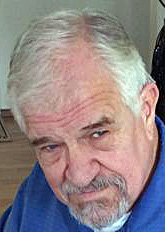 George was one of the thousands who came to the Oregon country in the Great Migration of 1843-1844. But he did not fit our stereotyped picture of the poor desperate sodbuster who was gradually going broke back East and had come out west to seek his fortune.
George was one of the thousands who came to the Oregon country in the Great Migration of 1843-1844. But he did not fit our stereotyped picture of the poor desperate sodbuster who was gradually going broke back East and had come out west to seek his fortune.
George was a successful businessman in Missouri. He bought six wagons for the trip west and outfitted them for some of his closest friends and business acquaintances. On the way to Oregon, he was in a position to help his fellow travelers in time of need, and he often did.
But there was something else special about George. He was black, what they called in those days a free Negro—not freed, for George had never been a slave. His father, Mathew Bush, of African descent, was said to be a sailor from the British West Indies. His mother was an Irish American servant. Both apparently worked for a wealthy Quaker family named Stevenson, and young George was educated in the Quaker tradition.
As a young man, George served in the U.S. Army and may have participated in the Battle of New Orleans during the War of 1812. He later worked as a voyageur and fur trapper for the Hudson’s Bay Company. During this time he traveled extensively in the Western plains and mountains, and may have reached the Puget Sound region.
After months of rough travel, George confided to traveler John Minto his hope of escaping racial prejudice out West. In his diary, Minto wrote, “He told me he should watch, when we got to Oregon, what usage was awarded to people of color, and if he could not have a free man’s rights he would seek the protection of the Mexican government in California or New Mexico.”
When George reached Oregon, several years before it officially became the Oregon Territory, he learned that white settlers there had just voted to exclude blacks. Instead of heading for Mexico, he and his band turned north and crossed the Columbia River, eventually settling at the southern end of Puget Sound, near what is now Olympia.
A petition was circulated and signed by 113 Oregon settlers, demanding that the provisional government’s discrimination against blacks be rescinded, or at least ignored in George’s case. George chose not to pursue the matter and became quite successful in the newer territory of Washington, so that he was able to help later settlers get started when they arrived.
George died in 1863, but his heirs continued to work the farm and to be involved in local civic affairs. His son Owen was elected to Washington’s first state legislature, where he introduced the bill that established the institution now known as Washington State University in 1890.
Had it not been for Oregon’s early discriminatory legislation, this might have been one of our first families, and we might have a town or county named for him, just as a large tract of land near Olympia is named Bush Prairie. Yes, that was George’s last name—Bush. And his middle name? Washington. George Washington Bush. Or as we might call him today: George Dubya.
No Comments
Leave a comment Cancel